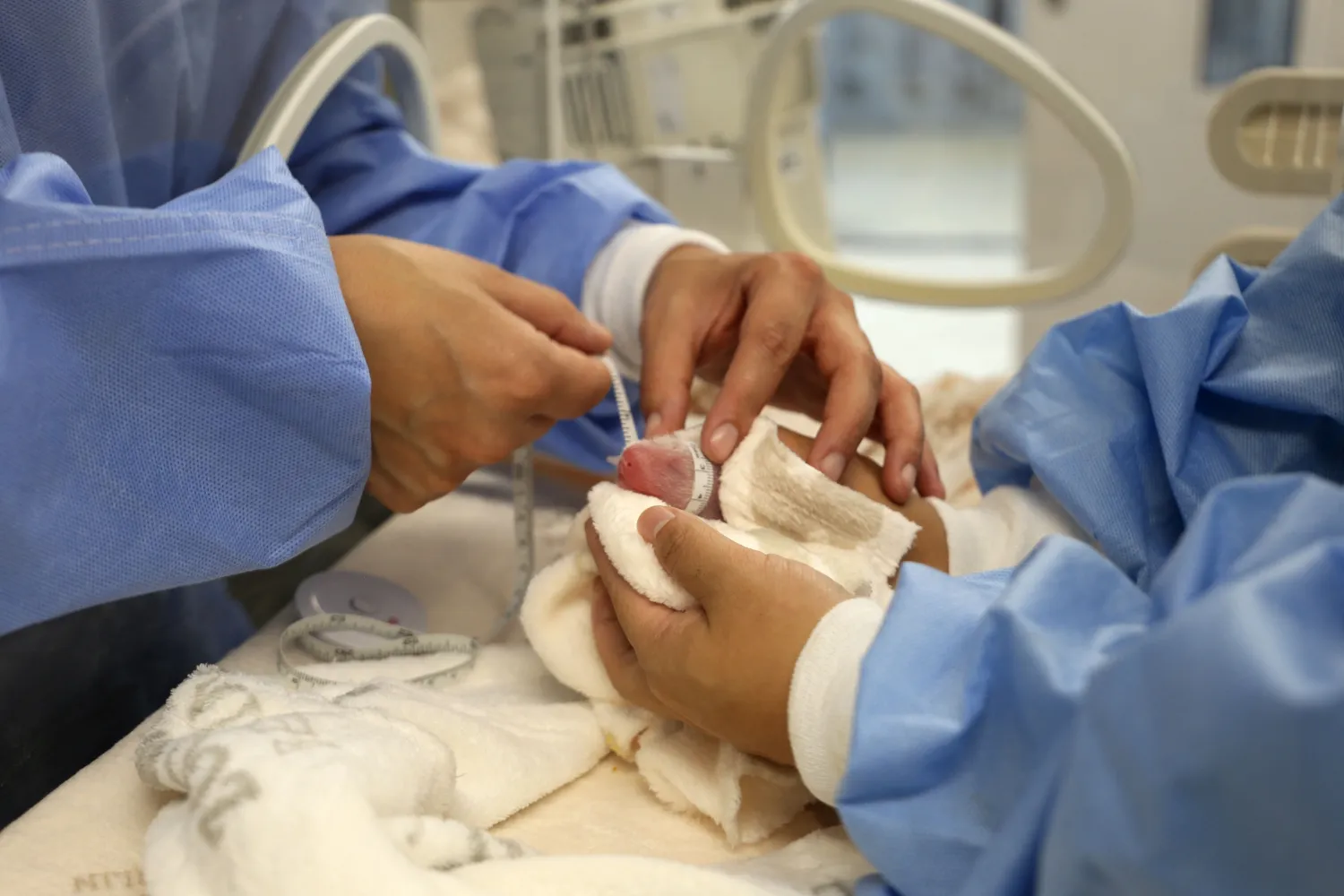The Berlin Zoo announced Friday that longtime resident giant panda Meng Meng has given birth to twins — for a second time.
The cubs were born on Thursday, the zoo said in a statement. They were born only 11 days after ultrasound scans showed that Meng Meng, 11, was pregnant. Their sex has not yet been determined “with certainty”, The Associated Press said.
“Now it’s time to keep your fingers crossed for the critical first few days,” the zoo said. The cubs are tiny, weighing just 169 grams and 136 grams (about 6 ounces and 4.8 ounces) respectively, and are about 14 centimeters (5.5 inches) long.
As with other large bears, giant pandas are born deaf, blind and pink. Their black-and-white panda markings only develop later.
“I am relieved that the two were born healthy," zoo director Andreas Knieriem said. "The little ones make a lively impression and mom Meng Meng takes great care of her offspring."
The zoo said that giant pandas usually only raise one cub when they give birth to twins, so it will “actively support” Meng Meng's child care in cooperation with two experts from China's Chengdu Research Base of Giant Panda Breeding who are in the German capital.
“With around 20 births a year, they have much more experience and are better able to assess development,” panda curator Florian Sicks said.
The cubs will alternate being with their mother every two to three hours to drink milk and are otherwise being cared for in an incubator donated by a Berlin hospital.
Meng Meng and male panda Jiao Qing arrived in Berlin in 2017. In August 2019, Meng Meng gave birth to male twins Pit and Paule, also known by the Chinese names Meng Xiang and Meng Yuan, the first giant pandas born in Germany.
The twins were a star attraction in Berlin, but they were flown to China in December — a trip that was contractually agreed from the start but delayed by the COVID-19 pandemic. China gifted friendly nations with its unofficial mascot for decades as part of a “panda diplomacy″ policy. The country now loans pandas to zoos on commercial terms.
Giant pandas have difficulty breeding and births are particularly welcomed. There are about 1,800 pandas living in the wild in China and a few hundred in captivity worldwide.
Meng Meng was artificially inseminated on March 26. Female pandas are fertile only for a few days per year at the most.
The new arrivals and their mother won't be on show to the public for the time being — but visitors can still see Jiao Qing, 14, as male pandas don't get involved in rearing cubs.
The Twins are Here! A Second Set of Giant Panda Cubs Has Been Born in Berlin

This handout photo taken on August 22, 2024 and released by the Berlin Zoological Garden on August 23, 2024 shows veterinarians measuring the head circumference of a newborn panda cub in an incubator after female Giant Panda Meng Meng, 11-years-old, gave birth to two cubs that day at the zoo in Berlin, Germany. (Photo by Handout / BERLIN ZOOLOGICAL GARDEN / AFP)

The Twins are Here! A Second Set of Giant Panda Cubs Has Been Born in Berlin

This handout photo taken on August 22, 2024 and released by the Berlin Zoological Garden on August 23, 2024 shows veterinarians measuring the head circumference of a newborn panda cub in an incubator after female Giant Panda Meng Meng, 11-years-old, gave birth to two cubs that day at the zoo in Berlin, Germany. (Photo by Handout / BERLIN ZOOLOGICAL GARDEN / AFP)
لم تشترك بعد
انشئ حساباً خاصاً بك لتحصل على أخبار مخصصة لك ولتتمتع بخاصية حفظ المقالات وتتلقى نشراتنا البريدية المتنوعة







